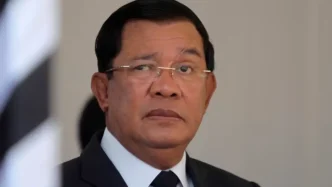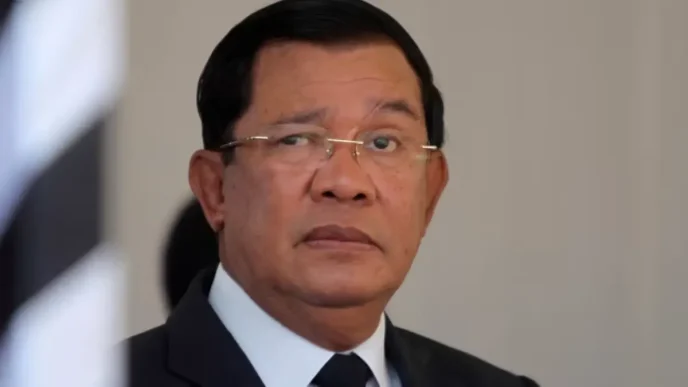In a sweeping operation to dismantle online scam networks, Cambodian authorities have arrested approximately 3,000 individuals, with the latest raids on July 21 netting over 160 suspects across Siem Reap and also Mondulkiri province, which is on the Vietnam border. The crackdown, one of the largest of its kind in the region, has drawn praise from international partners, including Indonesia and Malaysia, whose citizens have been among the victims rescued from these illicit operations.
A Regional Crisis with Global Implications
The surge in online scam operations across Southeast Asia has become a pressing concern for governments and international bodies alike. These networks often lure vulnerable individuals with promises of lucrative jobs, only to trap them in exploitative conditions where they are forced to perpetrate fraud, such as romance scams or cryptocurrency schemes, targeting victims worldwide. Cambodia, long a hub for such activities due to lax oversight in certain regions, has faced mounting pressure to address the issue, particularly as human trafficking allegations have surfaced alongside these scams.
On July 21, Cambodian authorities conducted two significant raids that underscored the scale of the problem. In Siem Reap, a popular tourist destination, provincial officials raided a rented villa in Knar Village, Chreav Commune, arresting 13 Nepalese nationals suspected of involvement in scam operations. Simultaneously, in the more remote Mondulkiri province, a larger bust in Puchab Village, Dak Dam Commune, O’Raing District, resulted in the detention of 149 individuals from 13 different nationalities. These operations highlight the diverse origins of those ensnared in the networks, pointing to a complex web of transnational crime.
The Cambodian government, under intense domestic and international scrutiny, has vowed to eliminate technology-based scams nationwide. Chhay Sinarith, who leads the secretariat of the Ad Hoc Commission to Combat Online Scams, emphasized the government’s determination during meetings with foreign diplomats on the same day as the raids. He described online scams as a widespread issue affecting multiple countries, underscoring the need for international collaboration to tackle the problem effectively.
International Allies Step Forward
The efforts of Cambodian authorities have not gone unnoticed. Indonesian Ambassador Santo Darmosumarto met with Sinarith on July 21 to express gratitude for Cambodia’s role in rescuing Indonesian citizens from scam operations and facilitating their repatriation. He acknowledged the global nature of technology-based scams and affirmed the Indonesian embassy’s readiness to support Cambodia’s initiatives. His comments reflect a growing recognition that no single country can address this issue in isolation; coordinated efforts are essential to disrupt the networks that span borders.
Later that day, Malaysian Ambassador Shaharuddin bin Onn also met with Sinarith to discuss the ongoing crackdown. According to the Cambodian Ministry of Information, the ambassador expressed confidence in the Royal Government’s commitment to eradicating these scams and thanked authorities for past rescues of Malaysian citizens. He further pledged the Malaysian embassy’s support and cooperation, signaling a strengthening of bilateral ties in the fight against cybercrime and human trafficking.
These diplomatic endorsements are significant for Cambodia, which has faced criticism over its handling of scam centers in areas like Sihanoukville, a coastal city notorious for hosting such operations. The support from Indonesia and Malaysia, both of which have seen their nationals fall victim to these schemes, lends legitimacy to Cambodia’s efforts and may pave the way for deeper regional cooperation. It also highlights the shared stakes in combating a crime that exploits the vulnerable and undermines trust in digital economies.
The Human Cost of Online Scams
Beyond the numbers and diplomatic exchanges lies a grim human reality. Many of those detained in Cambodia’s raids are not just perpetrators but victims themselves, often trafficked into the country under false pretenses. Reports from rescued individuals paint a harrowing picture of coercion, with workers facing physical abuse, debt bondage, and threats to their families if they refuse to comply. The diversity of nationalities among the detained—spanning Asia, Africa, and beyond—illustrates the global reach of these criminal enterprises.
Cambodia’s challenge is twofold: dismantling the operations while addressing the humanitarian fallout. Repatriating foreign nationals, ensuring their safety, and prosecuting the masterminds behind these networks require resources and expertise that the country is still developing. International cooperation, as voiced by the Indonesian and Malaysian ambassadors, could provide critical support in the form of intelligence sharing, funding for victim rehabilitation, and joint operations targeting the syndicates’ financial infrastructure.
Moreover, the raids in Siem Reap and Mondulkiri reveal the adaptability of scam networks. While Sihanoukville has historically been the epicenter of such activities, often linked to unregulated casinos and lax local governance, the spread to tourist hubs like Siem Reap and rural areas like Mondulkiri suggests that criminals are seeking new bases to evade detection. This geographic diversification complicates enforcement efforts, as authorities must monitor a wider array of locations, many of which lack the infrastructure for sustained policing.
Policy and Enforcement Challenges
Cambodia’s resolve to combat online scams faces significant hurdles. Corruption within local administrations has historically enabled these operations to flourish, with reports of officials turning a blind eye in exchange for bribes. While the current crackdown signals a shift in policy, sustaining this momentum will require systemic reforms, including stricter oversight of foreign investments in sectors like real estate and gaming, which often serve as fronts for illicit activities.
Legal frameworks also need strengthening. Cambodia’s laws on cybercrime and human trafficking are relatively new and lack the teeth to deter sophisticated syndicates. Penalties for operating scam centers must be severe enough to outweigh the profits, which can run into millions of dollars. Additionally, the government must address the digital dimension of these crimes, investing in cybersecurity expertise to trace and disrupt online fraud schemes at their source.
International pressure plays a dual role here. While support from countries like Indonesia and Malaysia bolsters Cambodia’s efforts, it also raises expectations for tangible results. Failure to deliver could strain diplomatic relations and invite sanctions or travel advisories, further damaging Cambodia’s reputation as a safe destination for tourists and investors. The government’s commitment, as reiterated by Sinarith, will be tested in the coming months as it seeks to balance enforcement with broader governance reforms.
A Regional Blueprint for Action
Cambodia’s crackdown could serve as a model for other Southeast Asian nations grappling with similar issues. Countries like Laos and Myanmar have also emerged as hubs for online scam operations, often in border regions with weak state control. The Association of Southeast Asian Nations (ASEAN) has an opportunity to lead on this front, fostering a regional task force to coordinate raids, share intelligence, and standardize laws against cybercrime and trafficking. Cambodia’s collaboration with Indonesia and Malaysia could be a starting point for such an initiative, demonstrating the value of mutual support in addressing shared threats.
Yet, the road ahead is fraught with challenges. Scam networks are notoriously resilient, adapting to enforcement actions by relocating or shifting tactics. The rise of remote work and digital platforms has only made it easier for these groups to operate across jurisdictions, exploiting gaps in international law. For Cambodia, maintaining the current pace of operations will require not just political will but also sustained funding and technical capacity—areas where international partnerships could prove invaluable.
Looking Ahead
As Cambodia intensifies its fight against online scams, the outcomes of these raids and diplomatic engagements will shape the country’s standing in the region. Success could position it as a leader in combating transnational crime, while setbacks might reinforce perceptions of systemic weakness. For now, the government’s determination, backed by allies like Indonesia and Malaysia, offers a glimmer of hope to the thousands still trapped in exploitative conditions. Whether this momentum translates into lasting change remains an open question, one that will define Cambodia’s trajectory in the years to come.
















